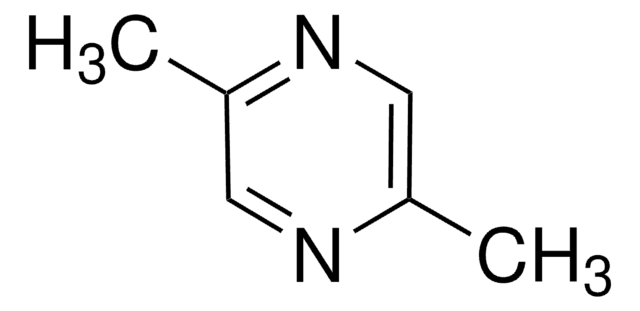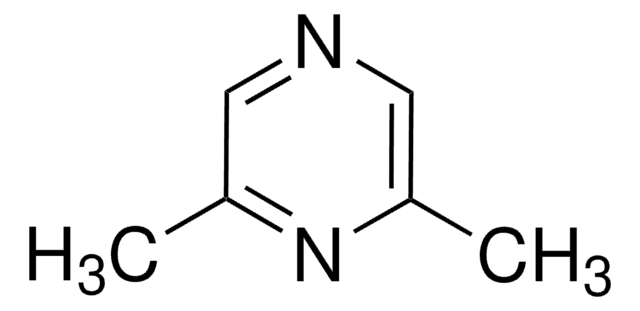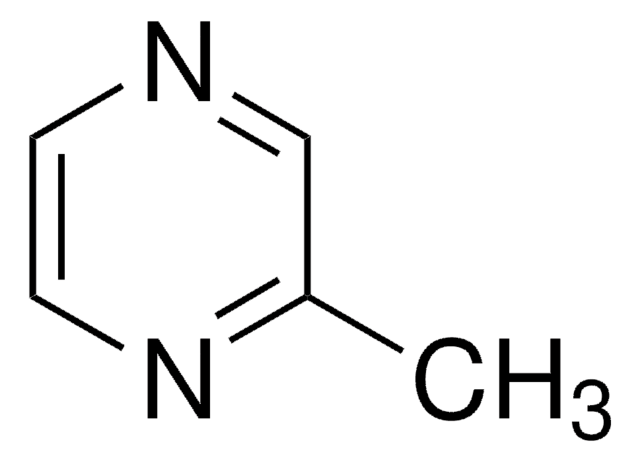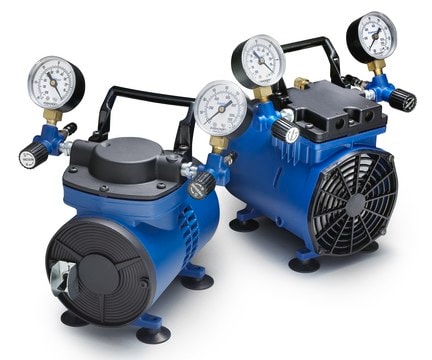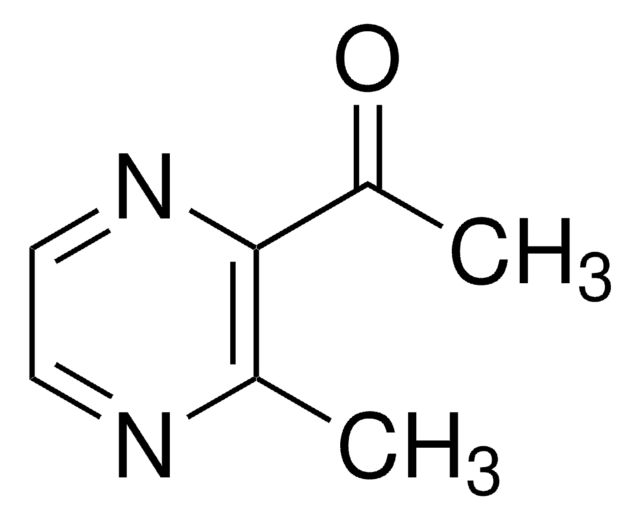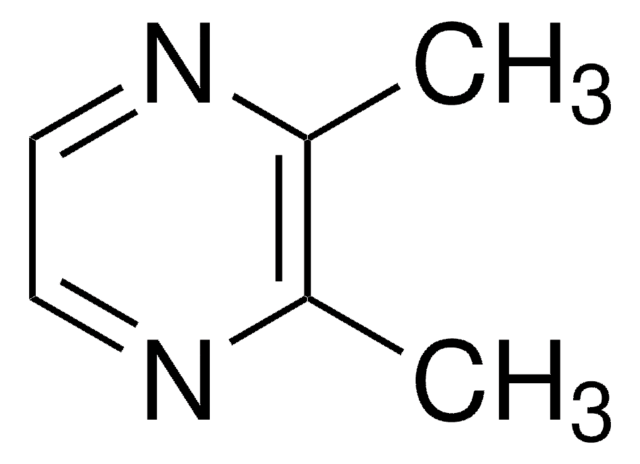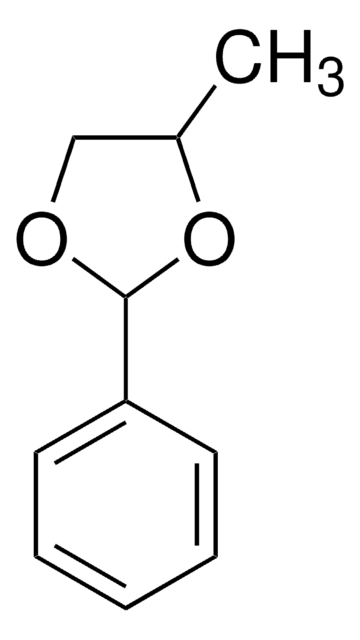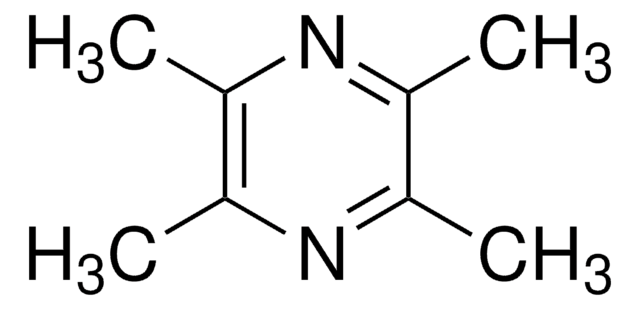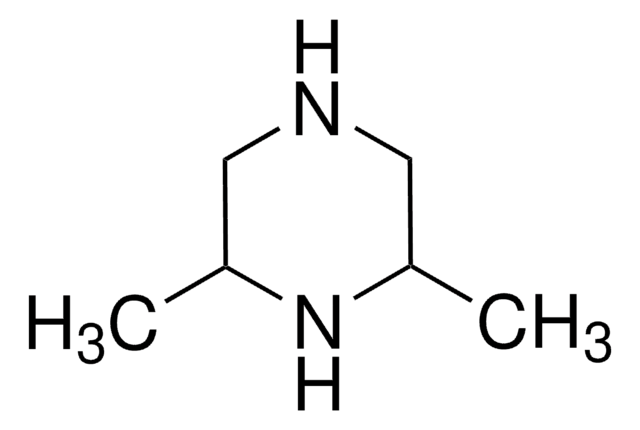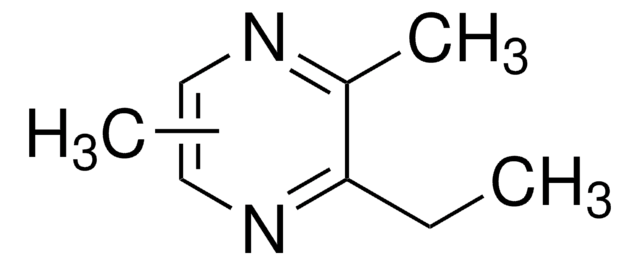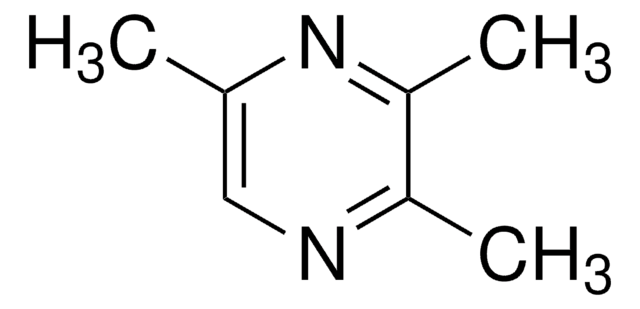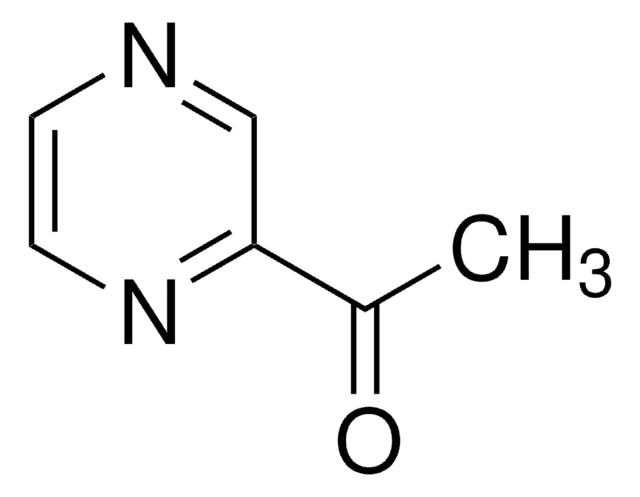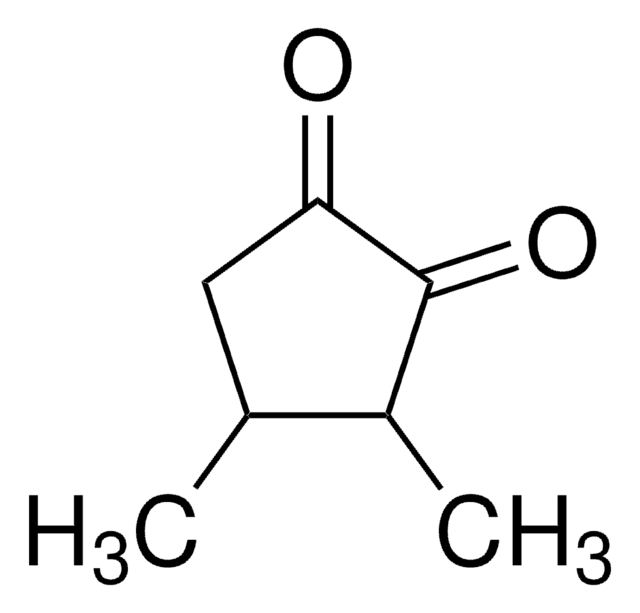W327301
2,6-Dimethylpyrazine
≥98%, FG
Synonym(s):
2,6-dimethyl paradiazine, 2-methyl-6-methylpyrazine
About This Item
Recommended Products
biological source
synthetic
Quality Level
grade
FG
Fragrance grade
Halal
Kosher
Agency
follows IFRA guidelines
reg. compliance
EU Regulation 1223/2009
EU Regulation 1334/2008 & 178/2002
Assay
≥98%
impurities
≤0.5% Water (Karl Fischer)
bp
154 °C (lit.)
mp
32-40 °C
application(s)
flavors and fragrances
Documentation
see Safety & Documentation for available documents
food allergen
no known allergens
fragrance allergen
no known allergens
Organoleptic
coffee; meaty; nutty; roasted
SMILES string
Cc1cncc(C)n1
InChI
1S/C6H8N2/c1-5-3-7-4-6(2)8-5/h3-4H,1-2H3
InChI key
HJFZAYHYIWGLNL-UHFFFAOYSA-N
Looking for similar products? Visit Product Comparison Guide
Related Categories
Application
- Pyrazines Biosynthesis by Bacillus Strains Isolated from Natto Fermented Soybean.: This study explores the biosynthesis of pyrazines, including 2,6-Dimethylpyrazine, by Bacillus strains isolated from natto fermented soybean. The research highlights the biochemical pathways and potential applications in flavor and aroma enhancement in food products, providing insights into the natural production of these compounds (Kłosowski et al., 2021).
Signal Word
Danger
Hazard Statements
Precautionary Statements
Hazard Classifications
Acute Tox. 4 Oral - Eye Dam. 1 - Flam. Sol. 2 - Skin Irrit. 2 - STOT SE 3
Target Organs
Respiratory system
Storage Class Code
4.1B - Flammable solid hazardous materials
WGK
WGK 3
Flash Point(F)
127.4 °F - closed cup
Flash Point(C)
53 °C - closed cup
Personal Protective Equipment
Regulatory Listings
Regulatory Listings are mainly provided for chemical products. Only limited information can be provided here for non-chemical products. No entry means none of the components are listed. It is the user’s obligation to ensure the safe and legal use of the product.
FSL
Group 4: Flammable liquids
Type 2 petroleums
Hazardous rank III
Water insoluble liquid
JAN Code
W327301-1KG:
W327301-SAMPLE:
W327301-BULK-K:
W327301-250G-K:
W327301-1KG-K:
W327301-250G:
W327301-VAR-K:
W327301-50G-K:
W327301-SAMPLE-K:
W327301-50G:
Choose from one of the most recent versions:
Already Own This Product?
Find documentation for the products that you have recently purchased in the Document Library.
Customers Also Viewed
Protocols
Separation of 2-Ethyl-3-methylpyrazine; 1-Methylpyrrole; 2,3-Dimethylpyrazine; 2,5-Dimethylpyrazine; 2-Ethylpyrazine, ≥98%, FG; 2,3-Diethylpyrazine; 2-Methylpyrazine; Carbon disulfide; Dimethyl disulfide; 2,6-Dimethylpyrazine
-Cymene; 2,5-Dimethylpyrrole; Acetoin, ≥96%, FCC, FG; 2,5-Dimethylpyrazine; 2,6-Dimethylpyrazine; 2-Ethylpyrazine, ≥98%, FG; 2,3-Dimethylpyrazine; 4-Heptanone; 3-Ethylpyridine; 2,3,5-Trimethylpyrazine; Furfural; Pyrrole; Furfuryl acetate; Linalool; Linalyl acetate; 5-Methylfurfural; γ-Butyrolactone; 2-Acetyl-1-methylpyrrole; Furfuryl alcohol; 2-Acetylpyrrole; Pyrrole-2-carboxaldehyde
Our team of scientists has experience in all areas of research including Life Science, Material Science, Chemical Synthesis, Chromatography, Analytical and many others.
Contact Technical Service